Berlinale 2023
A few surprises at the end of the festival
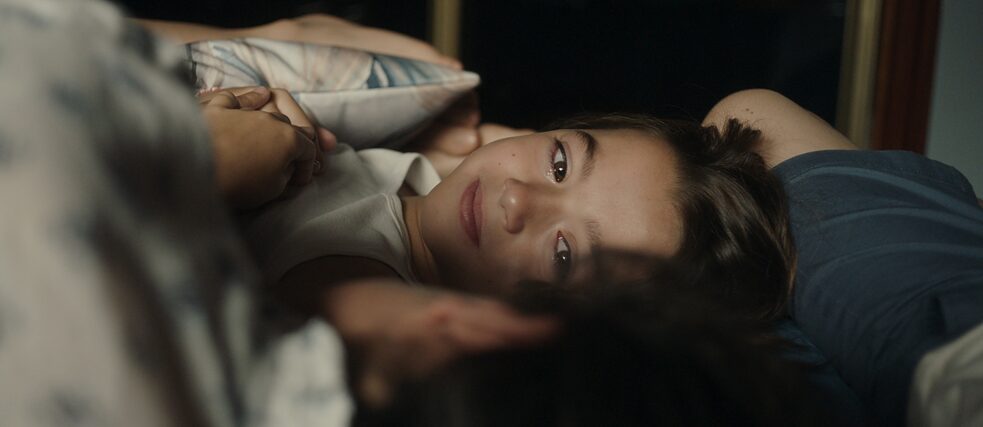
The audience is back, Steven Spielberg does a dance, and the Golden Bear goes to a French documentary film. What else has been happening at the Berlinale?
By Ula Brunner
Virtually no one guessed that the Golden Bear would be awarded to the Competition’s only documentary film – clearly even the director was surprised. “Are you crazy or what?”, was Nicolas Philibert’s reaction when the winner was announced.
His doc Sur l'Adamant (On the Adamant) focuses on day-to-day life in a psychiatric hospital housed within a barge moored on the River Seine. The 72-year-old French film documentarist (Être et avoir, 2002) spent several months living alongside the patients. They speak openly about their fears and desires. Jury president Kristen Stewart referred to Sur l'Adamant as a “masterfully crafted film” at the closing gala.
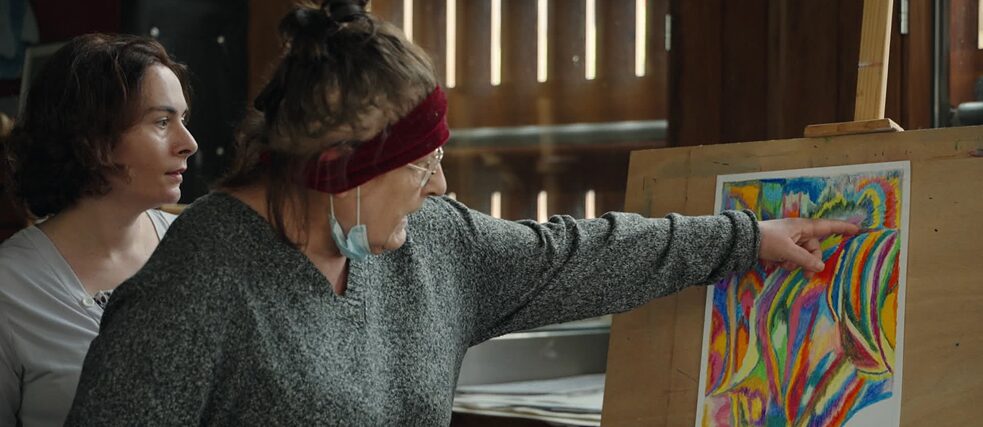 “Sur l’Adamant”. Director: Nicolas Philibert
| Photo (detail): © TS Production / Longride
“Sur l’Adamant”. Director: Nicolas Philibert
| Photo (detail): © TS Production / Longride
Sturdy craftsmanship
But the film wasn’t considered a favourite in the run-up to the awards ceremony. In total there were 19 submissions from 19 countries competing for the Golden and Silver Bears, including a large number of arthouse films but also thrillers and melodramas. There was even an animated film (Suzume) amongst them. The Competition programme was diverse in both content and form, but artistically speaking mediocrity prevailed. More innovative and trailblazing cinema could be found in other sections. Was it even possible to identify a work of outstanding brilliance in this Competition category characterised by its sturdy quality? In the end the jury of seven, headed by US film star Kristen Stewart, mainly went for established directors.Family stories
Philibert’s fellow countryman Philippe Garrel (Le sel des larmes, 2020) received the Best Director gong for Le grand chariot (The Plough). His film tells the story of a family of puppeteers experiencing an existential crisis, in which the director has cast three of his real-life children. So it’s a story within a story, something that could be original if it wasn’t so laboriously delivered.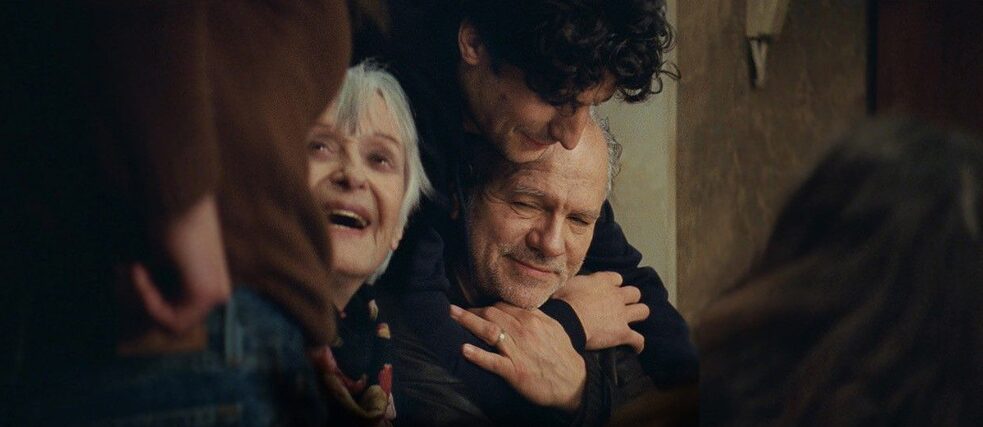 Francine Bergé, Louis Garrel, Aurelién Recoing in “Le grand chariot”. Director: Philippe Garrel
| Photo (detail): © Benjamin Baltimore / 2022 Rectangle Productions - Close Up Films - Arte France Cinéma - RTS Radio Télévision Suisse - Tournon Films
This isn’t the only Competition entry to revolve around the profundities of family relationships: Portuguese film-maker Joao Canijo scooped the Jury Prize with Mal Viver (Bad Living). Canijo brings together five antagonistic women who have inherited a hotel. The result is a psychological drama with strong female actors in the leading roles. What’s unusual is how the Portuguese director has made his story into two films: Mal Viver tells it from the perspective of the family who owns the hotel, while Viver Mal (Living Bad), which was screened in the Encounters section, is the guests’ point of view.
Francine Bergé, Louis Garrel, Aurelién Recoing in “Le grand chariot”. Director: Philippe Garrel
| Photo (detail): © Benjamin Baltimore / 2022 Rectangle Productions - Close Up Films - Arte France Cinéma - RTS Radio Télévision Suisse - Tournon Films
This isn’t the only Competition entry to revolve around the profundities of family relationships: Portuguese film-maker Joao Canijo scooped the Jury Prize with Mal Viver (Bad Living). Canijo brings together five antagonistic women who have inherited a hotel. The result is a psychological drama with strong female actors in the leading roles. What’s unusual is how the Portuguese director has made his story into two films: Mal Viver tells it from the perspective of the family who owns the hotel, while Viver Mal (Living Bad), which was screened in the Encounters section, is the guests’ point of view.
Three Silvers for German films
Three out of the five German Competition entries netted a Silver Bear to take home. Regular visitor to the Berlin Film Festival, Christian Petzold, received the Grand Jury Prize for his wonderfully lightweight tragicomedy Roter Himmel (Afire) – an honour that was long overdue for the exceptional Berlin director. This film follows Undine as the second part of his romantic trilogy, in which Paula Beer plays a leading role again.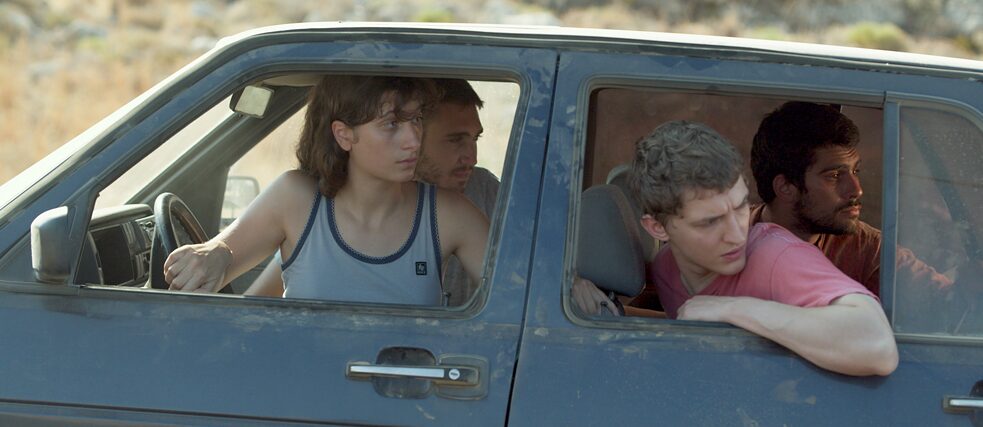 Theodora Exertzi, Odysseas Psaras, Nikolas Tsibliaris, Aliocha Schneider in “Music“. Director: Angela Schanelec
| Photo (detail): © faktura film / Shellac
Angela Schanelec got a Silver Bear for Best Screenplay for Music – her loose adaptation of the Oedipus myth. Austrian actor Thea Ehre was commended for best supporting role. In Christoph Hochhäusler’s thriller Bis ans Ende der Nacht (Till the End of the Night) she plays a trans woman who works with a police officer investigating drug dealers. Ehre fields a strong acting performance and co-stars alongside Timocin Ziegler in the lead female role, so she would also have earned a Silver Bear for Best Leading Performance.
Theodora Exertzi, Odysseas Psaras, Nikolas Tsibliaris, Aliocha Schneider in “Music“. Director: Angela Schanelec
| Photo (detail): © faktura film / Shellac
Angela Schanelec got a Silver Bear for Best Screenplay for Music – her loose adaptation of the Oedipus myth. Austrian actor Thea Ehre was commended for best supporting role. In Christoph Hochhäusler’s thriller Bis ans Ende der Nacht (Till the End of the Night) she plays a trans woman who works with a police officer investigating drug dealers. Ehre fields a strong acting performance and co-stars alongside Timocin Ziegler in the lead female role, so she would also have earned a Silver Bear for Best Leading Performance.
Youngest Bear winner
However the jury awarded this trophy to Sofía Otero. In the Spanish coming-of-age film 20.000 especies de Abejas (20,000 Species of Bees), the nine-year-old convincingly plays a child on a quest for their sexual identity. The atmospheric and sensitive debut of Basque director Estibaliz Urresola Solaguren would also have been a convincing candidate for the Golden Bear.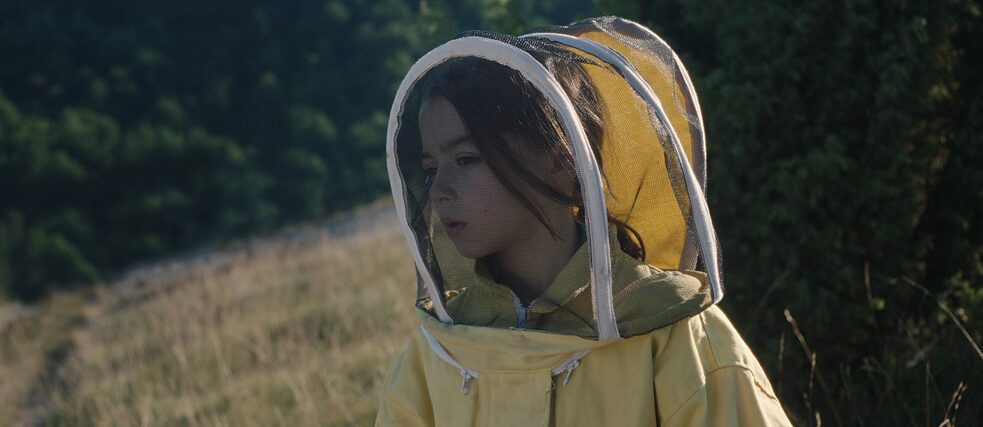 Sofia Otero in “20.000 especies de abejas”. Director: Estibaliz Urresola Solaguren
| Photo (detail): © Gariza Films, Inicia Films
Now the youthful star of the film, Sofía Otero, has become the youngest Berlinale award-winner of all time. Silver for Outstanding Artistic Contribution went to Hélène Louvart for her cinematography in Competition submission Disco Boy, starring Franz Rogowski.
Sofia Otero in “20.000 especies de abejas”. Director: Estibaliz Urresola Solaguren
| Photo (detail): © Gariza Films, Inicia Films
Now the youthful star of the film, Sofía Otero, has become the youngest Berlinale award-winner of all time. Silver for Outstanding Artistic Contribution went to Hélène Louvart for her cinematography in Competition submission Disco Boy, starring Franz Rogowski.
Construction sites everywhere
It was the fourth Berlinale festival under the direction of Mariette Rissenbeek and Carlos Chatrian. And it was, as they kept telling us, her first one not to be held in the shadow of the pandemic. But despite being able to attend in person without wearing masks, the festival enjoyment was not completely unclouded: the Berlinale Palace, the traditional festival centre, was in the middle of a building site, with routes into the venue obstructed by fences and barriers. The Berlinale cinemas have been spread across different districts, so visitors expecting to watch a lot of films had to shuttle back and forth. And unfortunately the city transport services didn’t make travelling easy for festivalgoers: there were replacement buses for the S-Bahn trains, while the underground was running at irregular intervals.Politics and celebrities
By this point the visitors were undeterred, and event organisers reported high ticket sales. Another reason might have been that the festival directors involved an unusually high number of celebrities: Anne Hathaway came to the opening film, Steven Spielberg did a little dance after accepting the Golden Bear, Sean Penn presented his Ukraine documentary Superpower, and jury president Kristen Stewart, aged just 32, spent ten days as the face of the Berlinale. Sean Penn and Wolodymir Selenskyj in “Superpower”. Directors: Sean Penn and Aaron Kaufman
| Photo (detail): © 2022. THE PEOPLE’S SERVANT, LLC. ALL RIGHTS RESERVED
At the same time they remained true to their political resolve. The Russian attack on Ukraine and the protests in Iran were the focus of numerous films and events right from the outset. The standing ovations for the video message from Ukrainian president Volodymyr Zelenskyy at the opening gala are something that will stick in the memories of many people.
Sean Penn and Wolodymir Selenskyj in “Superpower”. Directors: Sean Penn and Aaron Kaufman
| Photo (detail): © 2022. THE PEOPLE’S SERVANT, LLC. ALL RIGHTS RESERVED
At the same time they remained true to their political resolve. The Russian attack on Ukraine and the protests in Iran were the focus of numerous films and events right from the outset. The standing ovations for the video message from Ukrainian president Volodymyr Zelenskyy at the opening gala are something that will stick in the memories of many people.With its slick mix of arthouse programme, political mission and an array of stars, Mariette Rissenbeek and Carlo Chatrian are bang on in many respects: like any other major festival the Berlinale is not just measured by its films.
Comments
Comment